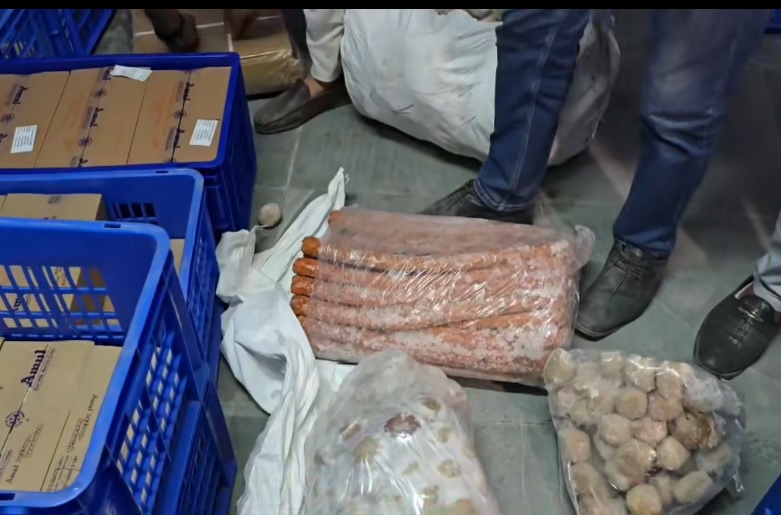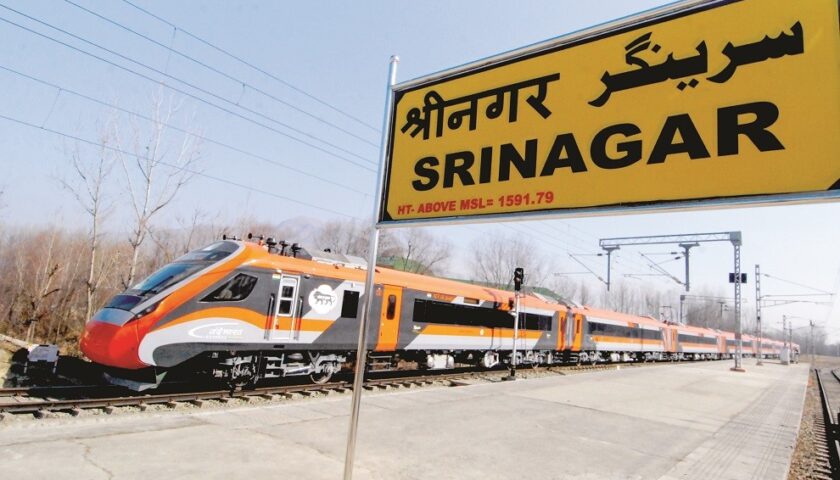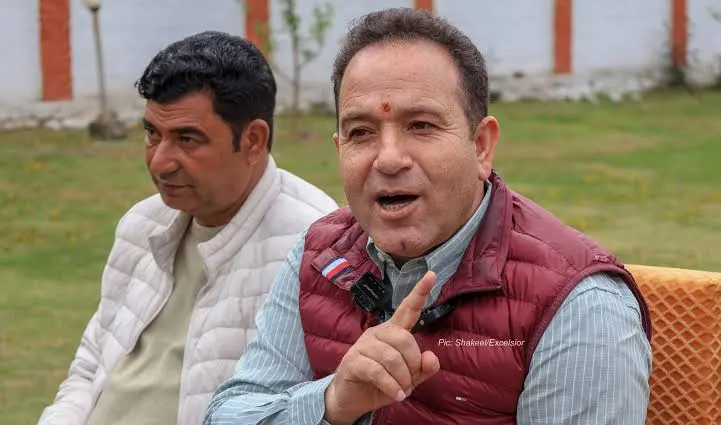FDA’s stance: No guilt without lab proof — but public trust hangs in the balance
By: Javid Amin | 20 Aug 2025
A chilling exposé titled “From Ghazipur to Srinagar: How substandard meat floods Kashmir’s markets” has shaken public confidence in food safety across the Valley. The investigation, published by Greater Kashmir and Kashmir InFocus, reveals how unfit and often rotten meat makes its way from Delhi’s Ghazipur slaughterhouse hub into Kashmir — slipping past weak regulatory checks, corrupt networks, and unaccountable systems.
What emerges is not just a case of food contamination but a larger crisis of governance, consumer trust, and public health in Jammu & Kashmir.
Key Revelations: Rotten Meat, Broken Systems
1. Meat Mafia Networks
The report traces a shadowy nexus of traders, transporters, and complicit officials that facilitates the movement of substandard meat into Kashmir. Trucks carrying unfit consignments allegedly bypass checkpoints through bribes and forged papers, reaching cold storages, hotels, and street markets without scrutiny.
2. Health Risks to Millions
The meat, often chemically treated to mask decay, is later sold to unsuspecting consumers. Doctors warn of risks ranging from food poisoning and infections to long-term illnesses linked to chemical adulteration. With meat being a staple in Kashmiri cuisine — from rogan josh to goshtaba — the danger is widespread.
3. Regulatory Failure
Food safety laws mandate strict inspections, but enforcement in J&K has remained weak and reactive. The exposé highlights how:
-
Inspections are either delayed, infrequent, or deliberately ignored.
-
Supply chain records are manipulated to appear legitimate.
-
Consumers are misled through false labeling and clean packaging.
4. Public Deception
What arrives on Kashmiri dining tables is often far from the fresh, hygienic meat advertised. Instead, it is a carefully packaged deception, raising moral and ethical concerns in a society where food purity is tied closely to both health and faith.
Watchdog Journalism: Truth on Camera
The Greater Kashmir video investigation has amplified the scandal, showing footage from Srinagar’s meat markets and testimonies from insiders. Traders admit off-camera how profit trumps ethics, while consumers express shock at discovering the possibility of haram and harmful meat being sold openly.
This kind of watchdog reporting has reignited debate over the role of media in protecting public health when regulatory bodies fall short.
FDA’s Response: ‘No Guilt Without Lab Reports’
The J&K Food and Drug Administration (FDA) has responded cautiously, stating that no individual or business can be held legally guilty until laboratory results confirm that the seized meat is indeed unfit for consumption.
What the FDA Says
-
Over 12,000 kg of unlabelled, decomposed meat has been seized in raids across the Valley.
-
Samples have been sent to advanced labs outside J&K for testing.
-
“We cannot jump to conclusions. Legal action must be based on verified reports,” said Hilal Ahmad Mir, Assistant Commissioner, Food Safety Kashmir.
Enforcement So Far
-
Nine licences suspended in Srinagar and Anantnag.
-
Five court complaints filed under the Food Safety Act.
-
Over 3,500 kg of rotten meat destroyed on the spot.
-
Surprise raids continue at cold storages, eateries, and supply hubs.
Yet critics argue that the FDA’s measured tone reflects institutional hesitation, while public anger demands swifter accountability.
Religious & Public Reactions
Religious Declarations
Grand Mufti Nasir-ul-Islam has called the sale and consumption of such meat haram, demanding urgent action to protect both faith and health.
Public Outrage
-
Social media is flooded with videos, boycott calls, and appeals for boycotting unscrupulous traders.
-
Restaurant sales have plunged by nearly 80%, as residents fear being served tainted meat.
-
Parents and health experts are calling for transparency in testing and public disclosure of results.
A Larger Crisis: Food Safety in Kashmir
This scandal underscores systemic weaknesses:
-
Over-dependence on imports: Kashmir imports much of its meat supply, making it vulnerable to infiltration of substandard consignments.
-
Weak cold-chain oversight: Trucks and storages often lack proper refrigeration, accelerating spoilage.
-
Minimal consumer awareness: Few citizens know how to identify chemically treated or stale meat.
Experts say this is not just a “rotten meat scandal” — it’s a wake-up call for overhauling Kashmir’s food safety framework.
The Road Ahead: What Needs to Be Done
-
Transparent Lab Reporting – Make test results public to restore trust.
-
Strict Licensing & Blacklisting – Permanently ban offenders from food trade.
-
Independent Food Safety Task Force – Free from local political or business influence.
-
Consumer Education – Campaigns on identifying fresh vs. spoiled meat.
-
Local Slaughterhouses – Strengthen local hygienic slaughterhouses to reduce dependence on imports from hubs like Ghazipur.
Key Takeaways
-
Rotten meat scandal: Over 12,000 kg seized in Kashmir.
-
Health risks: Chemically treated, decayed meat entering homes and restaurants.
-
Enforcement gap: Licences suspended, but no final convictions yet.
-
Public backlash: Outrage on streets and social media; restaurant sales crash.
-
Religious condemnation: Declared haram by Kashmir’s Grand Mufti.




